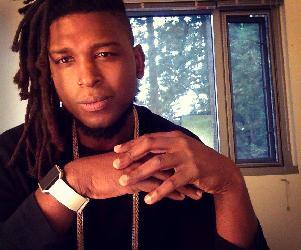Faculty Directory

- Pronouns she, her, her, hers, herself
- Title
- Associate Professor
- Division Humanities Division
- Department
- Feminist Studies Department
- Critical Race and Ethnic Studies
- Phone 831-459-5776
- Office Location
- Humanities Building 1, 437
- Office Hours Fall 2024: remotely and by appointment. Please email to arrange.
- Mail Stop Humanities Academic Services
- Faculty Areas of Expertise African Diaspora, African American / Black Studies, Gender Studies, Women's Studies, Feminist Theory, Critical Theory, Marxism
- Courses Critical Race and Ethnic Studies: An Introduction; Race, Gender, Power, Knowledge; Feminism, Race, and the Politics of Knowledge; Marxism and Feminism; Feminist Theories (Graduate and Undergraduate); Feminism and Social Justice
Biography, Education and Training
(On sabbatical until Fall 2023)
I trained in critical theory, black radical thought, and feminist theory at the University of California, Santa Cruz, where I received a Ph.D. in History of Consciousness with an emphasis in Feminist Studies and served as a founding coordinator of the Black Cultural Studies Research Cluster and the Critical Race and Ethnic Studies Graduate Collective. After two years as faculty in the Department of Ethnic Studies at the University of California, Riverside, I returned to UCSC as faculty in 2015.
My research and teaching explore the social arrangements of knowledge and the ways that knowledge and its institutional practices arrange social worlds.
Currently, I am at work on two books. The first, Discipline and Surplus: Black Studies, Women's Studies, and the Dawn of Neoliberalism (under contract, Duke University Press), places the institutional projects of black studies and women’s studies not at the margins but the heart of the consolidation of the post-Civil Rights U.S. university. Examining the historical emergence of black studies and women’s studies as knowledge formations in their own right, and as sites to which the university has turned inorder to manage and negotiate the social upheavals consequent to the mass admission of black (and) women students in the late 1960s, Discipline and Surplus aims to rethink what it means—and where we turn—to approach the university itself as an object of knowledge.
The second book, The University, in Theory: Essays on Institutional Knowledge, grows out of conversations that have developed in recent years in the field of critical university studies. As the field continues to consolidate its presence in universities through special issues in scholarly journals, new book series, and other forums, those of us who work in it increasingly encounter the injunction to theorize the university—that is, to assemble a coherent explanatory body of knowledge that reflects a general grasp of what the university is, what it does, and why. “The University, in Theory” seeks to interrupt this demand for theory by posing a different question: What if we looked at theory not as a tool that offers explanations to us about what the university is, but as a complex form of evidence produced by the university itself? Put in this way, what we encounter in the demand for theory is not so much knowledge but a vehicle by which the university organizes its institutional reproduction. Collecting and revising several recently published and forthcoming essays that deal with this theme, the book invites theory to consider its own historical conditions of possibility with greater care and livlier curiosity.
Written concurrently and conceptualized complementarily, I consider these projects as a two-front approach to a single, if complex and multifaceted, problem. Namely: how can we make use of the tools of minoritized fields of study to ask a question that contemporary humanities scholarship rarely does—what is a university? Toward that end, Discipline and Surplus is a historical study in that uses the institutional histories of black studies and women’s studies as an optic to read the university itself. By attending to the dramas and contradictions involved with establishing these fields, I argue, we begin to see a different kind of university take shape, one increasingly concerned with questions of justice at the same time as it is increasingly engaged in counterinsurgency; one whose ranks absorb wider swaths of the public than ever, yet one whose means of absorption articulate themselves through various forms of dispossession.
Honors, Awards and Grants
Woodrow Wilson Career Enhancement Fellowship for Junior Faculty, 2016-2017
UC President’s Postdoctoral Fellowship, UC Berkeley, Department of African American Studies, 2011-2013
Short-Term Research Fellowship, Schomburg Center for Research in Black Culture, New York Public Library, 2012
Selected Publications
"The View from Nowhere: On Frank Wilderson's Afropessimism." Spectre (November 2020): 110-122.
"Summertime Selves (On Professionalization)." The New Inquiry (October 2019).
"Abolitionist University Studies: An Invitation" (with Abigail Boggs, Eli Meyerhoff, and Zach Schwartz-Weinstein). Abolition (August 2019).
"Diversity." In Erica R. Edwards, Roderick A. Ferguson, and Jeffrey O.G. Ogbar, eds. Keywords for African American Studies (New York: NYU Press, 2018): 68-74.
"Critical University Studies and the Crisis Consensus" (with Abigail Boggs). Feminist Studies 44(2) (2018): 432-463.
“(Critical Ethnic Studies) Intellectual.” Critical Ethnic Studies 1(1) (2015): 86-94.
“Critical Theory, Queer Resistance, and the Ends of Capture” (with Liat Ben-Moshe, Che Gossett, and Eric A. Stanley). In Geoffrey Adelsberg and Lisa Guenther, eds. Death and Other Penalties: Continental Philosophers on Prisons and Capital Punishment (New York: Fordham University Press, 2015): 266-295.
“The Object of Object Lessons: Thoughts and Questions.” Feminist Formations 25(3) (2013): 178-87.
